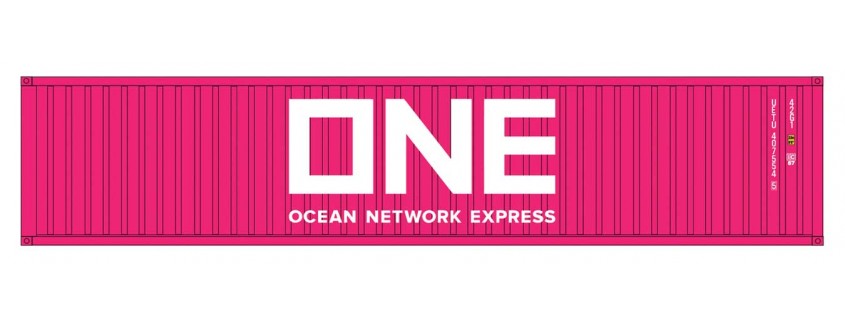We continue our independent reviews of the environmental reporting of the twelve largest container carriers in the world. Ocean Network Express (ONE) receives only 1.5 stars out of 5, occupying in that way the penultimate position, only above Pacific International Lines (PIL), which received 1 star out of 5. Contrary to PIL, ONE has produced one Sustainability Report in the past, well, in theory, two, one with the headline 2018 and the other with the headline 2019, but only the second counts because the first was launched when ONE had just started operations in April 2018. The other has the headline 2019 because it was delivered in September 2019, but, in fact, it covers ONE’s operations from April to December 2018. Therefore, it is clear why we are giving only 1.5 stars out of 5 to ONE: already in October 2020, it has not released a Sustainability Report for the operations from January 1 to December 31 of 2019. We cannot give the company 2 stars, which would have been our minimum score for a company reporting environmental issues for the last year.
In that report, released in September 2019, ONE claims to have had US$ 11 billion in net sales for its first operational year (April 2018 to March 2019); a fleet size at the end of March 2019 of 1,552,000 TEU, making it the sixth-largest in the world; a fleet size of 224 vessels, of which 30 are super large ships; and a service network covering 130 services loops. All these numbers sound great, but if that is the case, we ask two questions: Why did ONE produce for the year 2018 one of the shortest sustainability reports among the largest container carriers in the world? And why, together with PIL, is the only other major container carrier that, already in October 2020, has not produced a sustainability report for the operations of the year 2019? The COVID-19 crisis cannot be an excuse when its peers are producing their reports (one since February, and the two latest in September) and when, as we said in our previous review, even the heavily battered cruise companies have released their sustainability reports.
Given the lack of a Sustainability Report for the operations of the year 2019, we looked into two other sources of information: the environmental section at the website and the annual (financial) report for the year 2019. Regrettably, those sources were not useful either. The environmental coverage at its website includes excerpts from IMO’s regulations or the report we have already commented on, but nothing that we can consider additional. Regarding the annual report, we found nothing else than a brief 8-page report (“Consolidated Financial Statements”), which includes only financial information for the period from April 1, 2019, to March 31, 2020.
Hence, all we are left is with the Sustainability Report for the previous year and its 18 pages. The brevity would not be much of an issue if each paragraph had relevant content. The problem, however, is that most of the information is generic: regulations of IMO that ONE is complying with, the list of initiatives that the company has joined, the endorsement by ONE of the United Nations Sustainable Development Goals (SDGs), general commitment to protect the environment, an award by received by Ecovadis, etc. When a company is presenting a 100-page or at least a 70- or 50-page report, one can forgive those self-congratulating green actions, but when the report is short, even excessively short as having only 18 pages, one expects that the authors would go to the point.
As with PIL, however, we do not want to end with a negative note. We value that ONE estimates the CO2 equivalent emissions for the period April to December 2018 (a total of 10.1 million tonnes). As one would expect, the large majority of those tonnes (90%) were due to the consumption of HFO, followed by LDO and LFO. And some information is provided about other measures that ONE has taken: an in-house system that collects information on fuel consumption for the main engine, generator engines, and auxiliary boiler for each ship of its fleet; the regular hull cleaning and propeller polishing to reduce marine fouling; the presence of more streamlined bulbous bows in some of the ships and of high-efficiency propellers; the use of cold ironing while berthing in the three Californian ports of Long Beach, Los Angeles, and Oakland, where strict regulation is imposed, and the facilities are available. And we are convinced that ONE is doing more with its fleet to be responsible with the environment (other carriers are reporting more) but, of course, due to the brevity of the report, it surely missed them.
In summary, it is regrettable that a company like ONE, which transports between 6-7% of the world’s total container cargo, has not released a sustainable report this year. Let’s hope that next year, it will produce with time, a longer and more substantial report that the one released in September 2019 for the year 2018. Since ONE has a modern fleet, we are convinced that many other innovations and actions could be included in such a report.
Source: Hellenic Shipping






